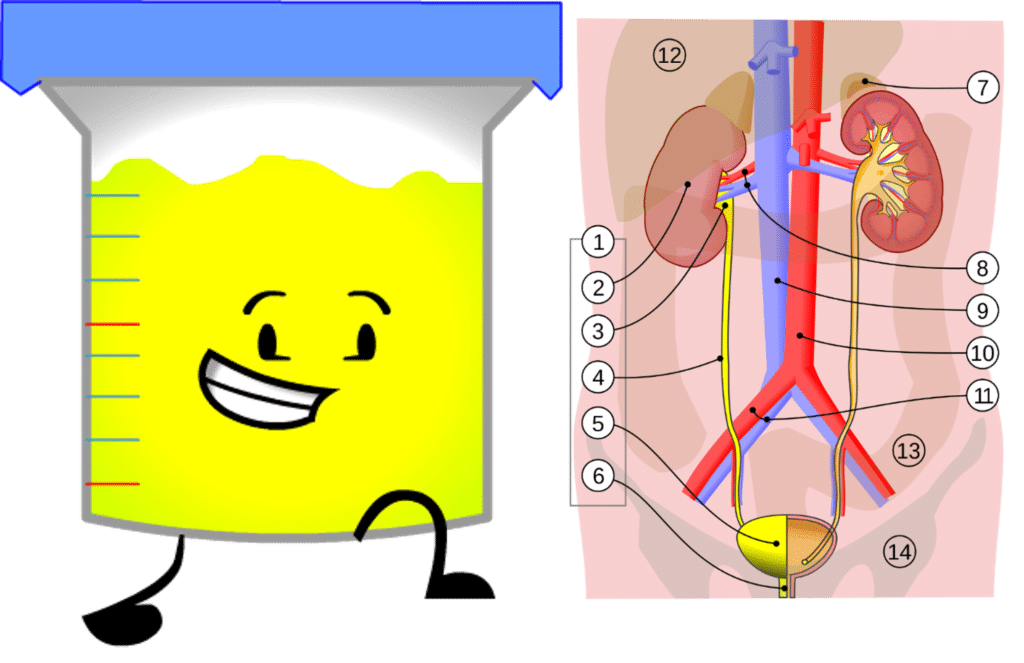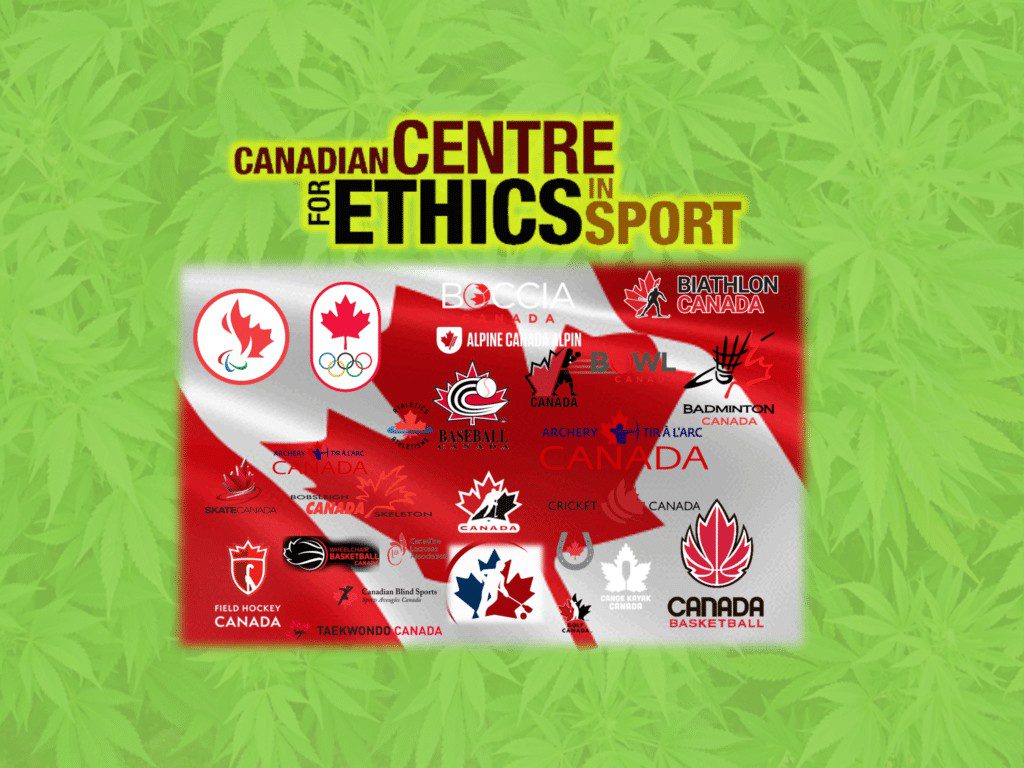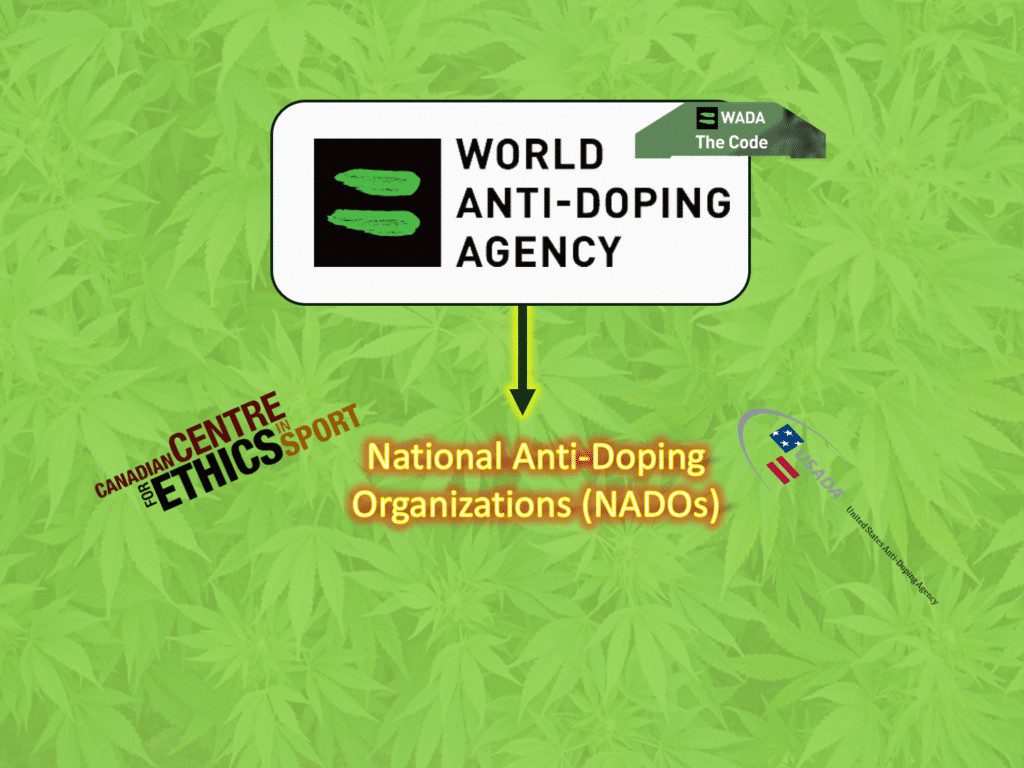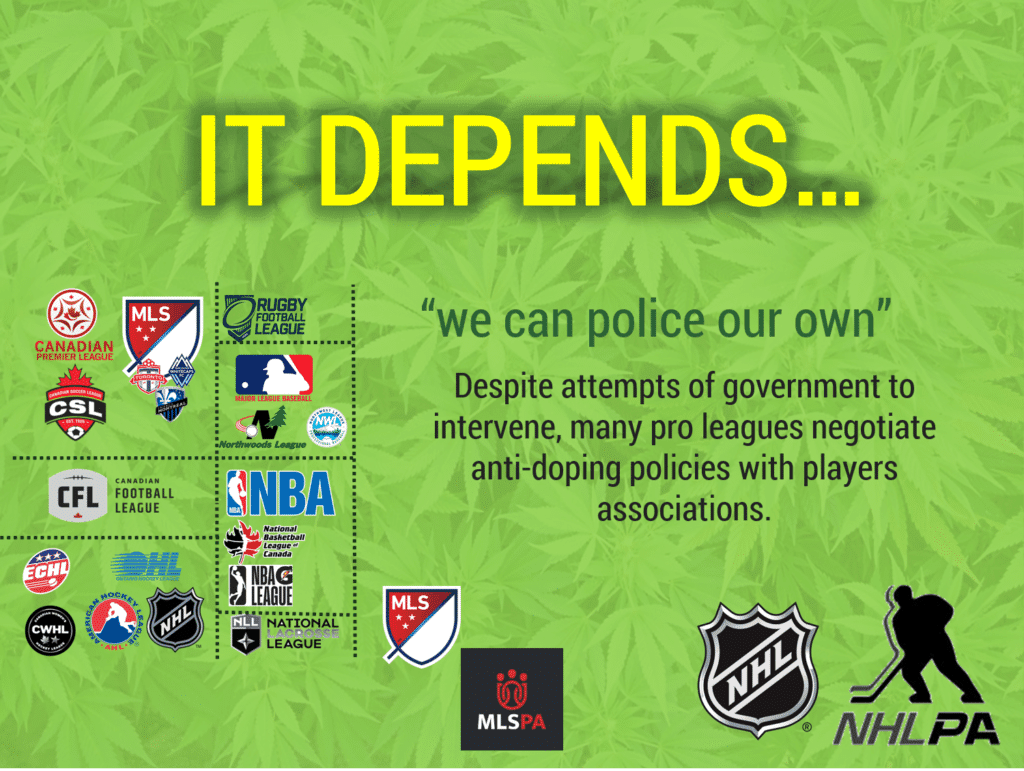Time has spoken. Canada just reached a mary-j-or (major) cannabis-related milestone. No, it’s not 420. It’s the second anniversary of The Cannabis Act’s enactment. Yup, that’s right. Hard to believe it’s been two years right? On October 17, 2018, marijuana became legal in Canada for recreational use. That lead to an abundance of press about how the legalization of cannabis would affect the sport world.

Among cannabis-friendly legal enablers, Canadians are now permitted to consume marijuana openly in most public spaces.
So, now that marijuana is legal for purchase and consumption in Canada, athletes can use it too, right? Sure, they can. But international sporting bodies and professional sports leagues have varying rules that prohibit cannabis in their systems.
The legalization of marijuana for recreational use puts a bright spotlight on the sporting sphere, but people are still skeptical of it. The sports politics world is also quite complicated, and a heated debate is going on right now.
Getting To Know Cannabis
After alcohol, cannabis is the most commonly used psychoactive substance. In other words, it’s the most commonly used substance that affects the mind.
Other names for cannabis include:
- Weed
- Dope
- Reefer
- Blunt
- Ganja
- Herb
- Skunk
- Kush
- Grass
- Pot
- Chronic
- Marijuana
- Mary-J
- Trending: Loud
- Trending: Gas
- Trending: Fire
- …and 2,000 + more!
But Is Cannabis A Drug?
A drug is a natural or synthetic chemical substance. It can be taken in a number of different forms. Drugs can be chewed, smoked, swallowed, injected, and/or eaten. Yes, there are other ways drugs are taken, but we’d rather not write about them here.

From taking drugs, one’s physical and/or mental state is altered. Once taken, drugs make their way down through the kidney and into the urine stream.

So, the answer to the question, “Is cannabis a drug? is a resounding yes based on the above definition. That’s because cannabis unquestionably alters one’s physical and/or mental state.
Little debate exists about cannabis meeting the criteria of a “drug.” Most agree it’s a drug. However, a debate exists. Whether the result of taking cannabis alters or enhances performance is controversial and for good reason.
The bigger question is, what do sport organizations think? Most sport organizations do not permit athletes to consume marijuana before, during or after competition. But it really depends on the sporting body.
Who Chooses What Drugs Are Banned And Not?
The answer is it depends! International Sport Federations adhere to the World Anti Doping Agency for what drugs are and are not permitted.
The World Anti Doping Agency (WADA)
Established in 1999, WADA is at the forefront of scientific research, education, anti-doping capacities, and expertise when it comes to drugs in sport. Their headquarters are actually in Montreal, Quebec. They’ve developed an extensive manual, called the World Anti-Doping Code. It’s known as The Code for short.

In the manual, WADA experts have listed general substances and their methods within categories such as PROHIBITED AT ALL TIMES, IN-COMPETITION and IN PARTICULAR SPORTS .

It’s easy to imagine that a WADA scientist, draped in a long white lab coat comes to every country in the world regularly to do testing themselves on athletes. That’s not the case! Instead, they delegate their work to National Anti-Doping Agencies (NADOs). For example, anti-doping in Canada is the responsibility of the country’s NADO. Canada’s NADO is called the Canadian Centre for Ethics in Sport (CCES). Meanwhile, for their neighbour-to-the-south (USA), the agency is called the United States Anti-Doping Agency (USADA).

So, for amateur athletes looking to compete in international competitions, the country’s NADO is responsible for ensuring The Code is adhered to.

Professional Sport Leagues
Most European professional sport leagues, such as the Union of European Football Associations (UEFA) follow The Code and let it guide drug policies.
The same goes for the World Tennis Association (WTA). A page on their website publicizes their adherence to WADA’s Code.
“The Tennis Anti-Doping Programme maintains a common set of rules and procedures that apply across all levels of tennis. Players are tested for banned substances in accordance with the prevailing version of the World Anti-Doping Agency’s Prohibited List. The Tennis Anti-Doping Programme is fully compliant with the World Anti-Doping Code.”
WTA’s Website
However, most North American professional sport leagues do not explicitly follow The Code. Instead, they often stand by a, “we can police ourselves” mentality.

Despite attempts by governments to intervene, most private professional sport leagues negotiate anti-doping policies with their player’s association.
So… Is Weed Banned In Sports?
Generally, yes. But the question, “is weed banned in sports?” should not be generalized. That’s because the answer depends on a multitude of factors. As with many sociological issues, context is key to understanding them. Just like the word “sports,” the topic of cannabis in sport is too general to apply to every situation.
So to understand if weed is legal in sports, an understanding of the types of cannabis is required. Believe it or not, there are 400 chemicals cannabis can be comprised of. But two of them, in particular, affect the mind and body. That’s THC and CBD. What follows is a brief look at each:
1 Cannabidiol (CBD)
A cannabinoid (CBD for short) is one of those 400 chemicals acting as a neurotransmitter release in the brain. This part of cannabis is considered a healing agent in many sport circles and is often promoted for free use given its potential to help athletes recover. That is why cannabidiol is starting to become considered a legitimate therapeutic use in sports.
2 Tetrahydrocannabinol (THC)
This is the chemical in cannabis that gets you bozzled, baked, fried, etc.
So, Is Cannabis Banned In Pro Sport?
But if we’re talking about large scale sporting competitions and the competitors specifically, the answer is generally yes.
Let’s take a look at a few North American professional sport leagues to see what’s a buzzin’. Please note: no two drug policies are the same. That’s why I’ve only covered 6 leagues below. There are plenty more leagues to check into with regards to cannabis in sport. If the league you are looking for isn’t covered in the list below, be sure to get your keyword searching skills on and head to Google. Some keywords that work well include:
- Cannabis policies in professional sport
- Marijuana [or any of the aforementioned synonyms] in {insert league name here}
Major League Soccer (MLS)
The MLS’ drug use policy is pretty vague, to say the least. It doesn’t allow players to use illegal substances and most “controlled substances”. However, if players get treatment on their own for taking them, it’s very possible for them to avoid punishment if caught. As for those “controlled substances,” the league doesn’t publically address whether cannabis is included. It’s extremely unclear whether Major League Soccer considers cannabis illegal in some places and legal in others. Yikes. Sorry for the confusing answer. I’m just working with what I’m given.
Conclusion: The MLS conducts testing for all prohibited substances including cannabis, but doesn’t announce it.
Major League Baseball (MLB)
The league will test players only if they believe there’s a reason to do so. Therefore, they must sense that a player is “doing cannabis.” When they sense it, they will test them. Subsequently, players who test positive for marijuana (over the 50ng/mL threshold) are subject to a treatment plan and up to $35,000 in fines. No big deal? We’ll leave that for you to decide!
National Hockey League (NHL)
Cannabis is not on the league’s list of banned substances under its Performance Enhancing Substances Program. Nonetheless, it is tested for under its Substance Abuse and Behavioral Health Program.
Ultime Fighting Championship (UFC)
Best way to put it: If you test positive a certain amount of days before a fight during camp testing, it’s not allowed. On the other hand, if you’re not fighting like UFC fighter Nate Diaz and smoking, you’re fine. The proof is in the pudding of these Nate Diaz photos:

National Basketball Association (NBA)
NBA players are randomly tested 4 times a season (Oct. 1 to June 30). Oh, and two more ndom tests each offseason (July 1 to Sept. 30). It’s almost impossible to get caught, but it does happen. I mean, reporters go into locker rooms after games. And if one of ESPN’s top reporters goes into the Cavs locker room after a game in the 2017 NBA finals and reports dank dank dank….. the smell of so much dank, then it must be possible, right?
Note: The National Basketball Association doesn’t test for marijuana/cannabis in the offseason. That explains A LOT. Including why the league didn’t do a thing about NBA star D’Angelo Russell being cited for marijuana possession after TSA found weed in his checked bag at LaGuardia. He was hiding it in his Arizona Iced Tea can. It was the offseason, so the NBA turned its head.
National Football League (NFL)
The NFL administers drug tests to their players once in the off-season from mid-April to mid-August. So I guess that means a smoke-up for late August onwards is in order?
Why Is Cannabis Generally Banned Across Sport?
A lack of understanding of the benefits of CBD can be explained as a reason.
Mary Jane’s Effects On Your Mind
Okay, this is a tough one to answer. Do you want to know why? Because we are all different. The fact is, the evidence is a bit mixed, to put it mildly. Some folks feel energized and focused, others not so much. Some experience a bit of anxiety; others become more confident.
And the lack of research in the area also doesn’t help much. But seeing as pot is now legal to purchase and use in Canada and in plenty of United States, we can expect studies to surface in the next few years. But enough about that for now.
Sometimes, we feel off. We can’t focus, we don’t feel motivated, and we may even feel a bit anxious. There could be a reason for that (such as lack of sleep) or no reason at all. Whatever the case, pot may prove to be an effective way to get your creative juices going, lift your mood, and become more focused.
Let’s take a look at some of Mary Jane’s effects.
1 Mood
It’s no secret that pot often brings about relaxation and euphoria. This is thanks to the effects of THC on the brain. As you smoke, you stimulate the pleasure center of your mind (similarly to other activities like eating delicious food) which releases a hormone called dopamine.
However, it’s worth pointing out that sometimes, marijuana can have an adverse effect. Some folks have reported that hitting up a joint enhanced their low or depressive mood. Of course, we are all different, and we can’t all expect the same effect.
2 Focus and Anxiety
For the most part, we’ve been lead to believe that marijuana makes us unfocused. But there is another side of the story. Some triathletes have said that consuming cannabis or cannabis-containing foods before working out has helped them focus better on their training.
Some marathon runners have also said that smoking a joint before a workout or race has helped them get in the groove, focus more easily and feel like they can run longer distances.
When it comes to anxiety, people also seem to recommend the use of pot. Weightlifters (even professional competitors) have said that smoking the occasional joint before a workout cures them of their anxiety and makes them more confident. Lifting heavier weights comes more natural and getting in the groove of things makes each exercise more fulfilling.
3 Motivations
This is a bit of a controversial question, and there are some strong opinions on both sides. But, we can argue that pot shouldn’t affect your motivation to train so long as you’ve made a plan to do so. In fact, seeing as marijuana tends to bring about euphoria, it’s not far-fetched to assume that it can enhance our willingness to put more effort into our physical fitness.
In that regard, you should light up the occasional Mary Jane with a bit of caution (and some timing). For example, you should start with a small dose and do it shortly before working out. That way, you’ll be out the door quickly, and you won’t give yourself the option to lose motivation.
Pot and Your Mind – In Conclusion
But before you go off to buy marijuana to reap the mental benefits, remember one thing:
It’s best to start with tiny doses and see how it affects you. From there, you can make small tweaks to see what dose gives you a boost. You don’t want to get too high that you can’t get any work or training done.
In a nutshell, microdoses will allow you to experience subtle effects. You will feel calm, focused, and even more creative.
Pot’s Effects On Your Athletic Efforts
Until recently, people mostly saw smoking a joint and practicing fitness and sport as two opposites. On the one hand, you’ve got those dedicated to the art of physical fitness and athletic performance. And on the other hand, you’ve got the couch-bound Cheeto munchers.
For instance, pot has the reputation of making us lazy and sluggish. Any serious athlete would dismiss the idea of smoking pot right then and there. After all, slow and lazy are the opposite of what athleticism is all about.
But, as pot gained more and more popularity, athletes too began to dabble with the occasional joint (but don’t tell coach!). One notable example is Arnold Schwarzenegger – one of the greatest bodybuilders of all time, 7-time Mr. Olympia winner, the Austrian Oak. Need I say more?
Naturally, athletes loosened up a bit and at least gave Mary Jane a shot. Much to everyone’s surprise, smoking the occasional joint didn’t seem like such a bad thing anymore. Athletes still did great in their sports and stayed consistent with their workout programs. Marijuana also didn’t seem to slow down muscle growth or fat loss.
And since cannabis law relaxed quite a bit in recent times, a new breed of athletes rose from the ashes. These days, many athletes not only smoke pot often but also take full advantage of its perceived benefits.
While we can’t know for sure whether pot directly improves fitness, we know that it helps us mentally. Many active people stand by pot and claim that it helps them get in the zone and work out more often. One notable example is the former NFL player Eben Britton who has been very public about his pot use. Britton has said that pot allows him to form a deeper connection with his body and have more fulfilling workouts. He’s also said that marijuana helps him manage pain.
So, athleticism may not be the first thing that comes to mind when you think of pot-smoking, but there could be more to it.
Are There Any Cons To Marijuana in Sports?
As with most things, cannabis in sports can also have some drawbacks. Firstly, there’s the issue of dosing. While small doses seem to help us become more creative, focus better and feel happier, too much can quickly swing us in the other direction.
Too much dope can make us feel tired, unfocused and unmotivated to do anything. Not to mention the munchies that can push you to make some questionable eating choices — for example, eating half a cake in the middle of the night.
Secondly, it’s important to remember that dope is, after all, a drug. And while very few people get addicted to weed, you need to keep the possibility in mind. Most people say that they can stop at any time. But if a person has some addictive tendencies, they should be more careful.
And finally, the most common way of consuming marijuana (smoking) seems to be harmful to the lungs. But there are other great alternatives such as mixing it with food (brownies, anyone?), making it into tea, and vaping it.
Should Getting Baked Be Seen as Doping?
Um, maybe? Many substances come to mind when it comes to doping, but marijuana isn’t one of them.
Although nobody knows for sure, marijuana doesn’t seem to boost athletic performance in the traditional sense. It doesn’t increase energy production. It doesn’t make you stronger or more explosive. And it certainly doesn’t bring about physical changes that make us more endurant.
Cannabis’ benefits are primarily in the mind. Thanks to the mental benefits, we could argue that marijuana may potentially improve your performance in sport. But, in most cases, it works mostly to get you in the zone more smoothly and help you enjoy your training sessions better. Plus, if you consume too much of it, you can expect the opposite effect to what you’re looking for.
By definition, doping is the act of taking a banned substance that directly increases athletic performance. An excellent example of that is anabolic steroids, which are well-documented to increase:
- Muscle mass;
- Levels of some hormones;
- One’s ability to do more work and recover faster;
- Strength, power, speed, and endurance;
Steroids, stimulants and other banned substances not only bring about greater athletic benefits but also make otherwise impossible feats achievable. Again, examples of that include incredible muscular and strength development that would otherwise be physically impossible. Performance-enhancing drugs can also make you much faster and more explosive, as well as more endurant.
And seeing as dope doesn’t have such a direct effect, we could argue that classifying its use as doping is unjust.
Conclusion
The world of politics is… complicated. Decisions and changes take time. Coming to a consensus is often impossible. In some cases, agencies make poor choices, be it due to the lack of information or because they interpret some findings poorly. See The Cannabis Act for details.
And seeing as cannabis used to be illegal for a long time, there is still a lot of stigma surrounding its use – be it casually or in the context of sports.
But, there is a silver lining. We are slowly (but surely) getting away from old beliefs and marijuana is now legal for the most part (which is a huge step up). That is why the subject of weed, marijuana, reefer, loud, fire, or whatever else the cool kids are calling it nowadays are being talked about so much in the world of sport.
All of this will undoubtedly lead the way for plenty of research, which will help us learn a lot more about the drug. And yes. Cannabis is a drug! But cannabis is a complicated one (400 chemicals) that doesn’t make the debate about whether or not to allow it in sport simple AT ALL. Let the debate rage on.

